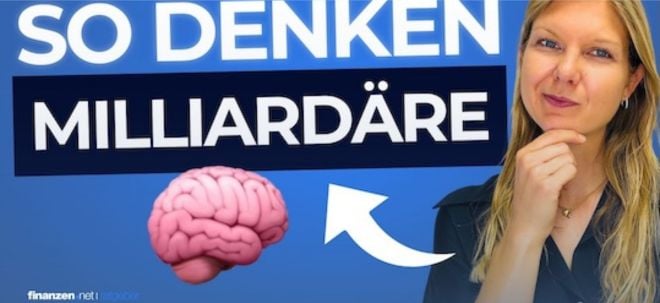PAGE 18 : https://www.frc.org.uk/getattachment/...d-4842-b85a-e8432279cf8f/FRC- Mazars-LLP-Public-Report_July-2022.pdf 'As the audit of significant estimates and assumptions has been an area of recurring finding, the firm must, as a priority, update its audit quality plan to address our concerns in this area.
We continue to identify key findings across the audits we have inspected and on three individual audits there were multiple key findings. The firm’s review procedures, including those undertaken by the audit partner and Engagement Quality Control Reviewer,failed to identify these issues and, as a result, the quality control procedures were not sufficiently robust to prevent or detect potential material misstatements. Specifically, there were several areas where there was:•Inadequate testing of account balances across significant risk areas;•Failure to explain why the team concluded on a range of issues; and•Lack of evidence to support the audit team’s conclusions.The firm must take robust action to ensure that its quality control and engagement quality control procedures, including review by senior members of the audit engagement team and the Engagement Quality Control Reviewer, are effective'. Etc. Question 10: Can you confirm, that the above shortcomings do not apply to the WHOA documents, in other words, can you guarantee that the very serious shortcomings of the accountant Mazars in this case, the creation and verification of the WHOA documents, do NOT apply? 'Implement measures to improve audit quality in response to other issues driving lower audit quality assessments:
On one audit, the deficiencies in testing led to a material error not being identified in the total of operating expenditure although it did not impact net assets. This was identified by the auditor after the audit report had been signed and communicated to those charged with governance. Appropriate professional scepticism was not demonstrated in relation to this material increase in operating expenditure.' Page 23 https://www.frc.org.uk/getattachment/8cf33c61-24fd-4842-b85a-e8432279cf8f/FRC-Mazars-LLP- Public-Report_July-2022.pdf 'We identified the following key findings where the firm needs to:•Improve thefirm’sguidance on how to more consistently consider the perspective of an Objective Reasonable and Informed Third Party when taking decisions relating to ethics and independence, and in particular,that of non- practitioners, such as informed investors, shareholders or other stakeholders.•Enhance its policies and procedures to maintain complete and up-to-date corporate trees, especially for international groups with complex structures, to inform decisions on independence matters.Given the effective date of the Revised Standard, the majority of the audits inspected in the current year were performed under the previous Ethical Standard'. Question 11: Can you guarantee, that ALL Steinhoff stakeholders, including shareholders, can rely on financial documentation with adequate professional audit quality?. Can you also make sure that Steinhoff did everything in its power, with respect to the WHO documents, to achieve transparency and the greatest possible financial and objective integrity? Can you guarantee the quality of an Objective Reasonable and Informed Third Party (like EY f.i.) when taking decisions relating to ethics and independence regarding the WHOA documents? Question 12: Can you guarantee you did not breach the Dutch Government Code regarding the WHOA proposal en the managing- proces, the preparing of the documents?
• In conclusion, the Company takes the view that SdK’s statement that “shareholders are in the money” is speculative, unsubstantiated and potentially harmful because it may cause investors to base their investment and voting decisions on incorrect information. Question 13: Can you explain what kind of elements in the SdK statements are speculative, unsubstantiated and potentially harmful? Can you garantee that in the Steinhoff documents there are NO such statements? Question 5: What is your view on the B. Riley Farber analysis commissioned by SdK and its statement that “the Restructuring Plan is prejudicial to shareholders”? Answer Steinhoff: As stated in response to the prior question, the Company has received an executive summary analysis drafted by B. Riley Farber commissioned by SdK. The Company has reviewed this executive summary analysis and considers that it is speculative, unsubstantiated and does not provide any evidence or analysis to support the statement that “the Restructuring Plan is prejudicial to shareholders”. On the contrary, the Company considers the Restructuring Plan to be beneficial, rather than prejudicial, to the shareholders. • In a scenario where the Restructuring Plan is not implemented, the Company would likely face a default and possible bankruptcy and enforcement processes. Under those circumstances, shareholders are not expected to receive any distribution at any point in time. Under the terms of the Restructuring Plan, however, shareholders are offered a 20% economic interest through the CVRs in any potential upside value in the restructured Group after repayment of the external debt and accrued interest (see question 3 of Part 2 above). Question 14: How does Steinhoff explain, that a very large number of experts and stakeholders, firmly reject the proposal, when you consider the proposal to be the best possible option for shareholders? Question 15 : Can you ensure that ALL stakeholders have the same amount of information on the WHO proposal and that a proper and balanced evaluation of the documents is therefore possible for everyone? Could it be that you did not provide sufficient information to the shareholders about the benefits of the proposal? Question 16: What did make Steinhoff happy to present the proposal on 15 December 2022? PAGE 30 FRC Report: 'Current inspection results:Despite the actions taken by the firm this year, its inspection results have remained poor with a number of findings recurring from one year to the next. Mazars must take stock and reconsider whether the actions it has taken have been fully completed and were effective and, whether in hindsight, these were all the right actions. For example, financial service methodology, actions to address poor first year audits and initiatives to improve quality control need further consideration'. PAGE 36
'Insufficient challenge of management judgement. The specific areas where deficiencies were identified varies from year to year. In 2020/21, deficiencies were identified in areas including asset valuations, goodwill, expected credit losses, and provisions'. The following theme was identified in the 2020/21 iQM programme which was not identified in the prior year:•Insufficient challenge of management judgement in going concern assessments, in particular in relation to the audit of judgements and assumptions applied by management in forecasts. Last but not least:
Question 17: What is your opinion on the conclusions of the FRC report on Mazars?
Question 18: Can you guarantee the quality of Mazars regarding the WHOA proposal? Can you guarantee the professional quality of EY, even though EY was the subject of forensic research during the drafting of the Fairness Opinion that led recently to the ban for 2 years, a very heavypunishment?
Question 19: Can you guarantee that ALL Steinhoff stakeholders, including shareholders, can rely on financial documentation with adequate professional audit quality. Can you also make sure that Steinhoff did everything in his power with respect to the WHO documents, to achieve transparency and the greatest possible financial and objective integrity?
Question 20: In the interest of sufficient information, do you consider it acceptable that Steinhoff ignores the decision of the South Africa Court in May 2022 to publish the full PWC report of the fraud investigation and thereby obstruct the course of justice?
What are the considerations that make you feel above the law and do not need to inform stakeholders about possible internal fraud or other negative issues? I look forward to your response, many thanks. Kind regards, J. Peer |


 Thread abonnieren
Thread abonnieren

